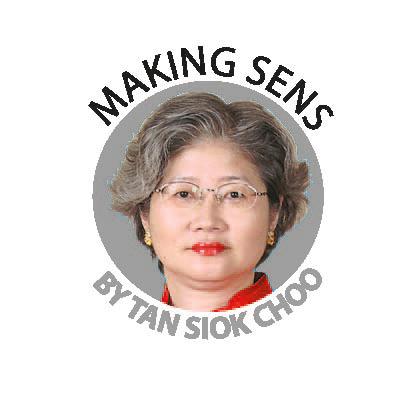BECAUSE expectations were unrealistically high, Pakatan Harapan’s first year of governance has been rated by many analysts and academics as underwhelming.
Its biggest successes have been what didn’t happen – the four-party Pakatan government didn’t fall apart; although one commentator said 23 out of 28 Cabinet ministers are inexperienced at the federal level, their misjudgments were newsworthy but not monumental and despite looser inter-party discipline, the disagreements didn’t affect the ruling coalition’s ability to govern.
Going forward, Pakatan needs to step up its performance, politically and even more urgently, economically.
First, ruling coalition leaders would do well to remember this salient fact – in the 14th general election held on May 9 last year, 51% of voters (excluding those whose votes were deemed invalid) who marked their ballots in favour of the then opposition were rejecting Barisan Nasional (BN) rather than endorsing Pakatan.
Second, by levelling charges of corruption, money laundering and other offences against former prime minister Datuk Seri Najib Razak and other party warlords, Attorney-General Tommy Thomas is inadvertently helping the former ruling party to clean its Augean stables and in the process, paving the way for untainted and younger leaders to take the helm in Umno.
If 63-year-old Umno acting president Datuk Seri Mohamad Hassan – a former Negri Sembilan mentri besar, untainted by charges of corruption with good people skills with all ethnic groups – takes over as party president, he could prove to be a formidable political opponent against Pakatan’s ageing leaders.
Pakatan chairman is 93-year-old Tun Dr Mahathir Mohamad, while two other 71-year-old leaders are Keadilan president Datuk Seri Anwar Ibrahim, slated to take over when Mahathir steps down, and Bersatu president cum Pakatan deputy president Tan Sri Muhyiddin Yassin.
Third, if Pakatan hopes to win a second term of office, the key issue for voters is the Malaysian economy. This is encapsulated by the question posed to voters by successful US presidential challenger Ronald Reagan against incumbent president Jimmy Carter in the Oct 28, 1980 debate: are you better off (now) than four years ago?
Mahathir recently announced Pakatan’s new economic target is ensuring shared prosperity. While this is admirable, much will depend on specific policies introduced, how they are implemented and whether successes will be evident before the next general election that must be held by Sept 16, 2023.
To achieve shared prosperity, Pakatan should focus on empowering two, often overlooked, constituents – women in general and Muslim women in particular as well as entrepreneurs of start-ups and small businesses.
Despite the victory in Sandakan, the three by-elections in Semenyih, Cameron Highlands and Rantau suggest Pakatan’s support among Malay-Muslim voters in Peninsular Malaysia is declining.
Competing with Umno and PAS to adopt a more conservative stance on Islamic-Malay issues is a no-win strategy for Pakatan because this approach could alienate many of its non-Muslim supporters.
Instead, Pakatan should focus on women in general and Muslim women in particular. Suggested policies include accelerating the appointment of women syariah judges, ensuring syariah payments after a marriage is dissolved are legally enforceable and expeditious while legally ensuring both parents have an equal role in determining their children’s religion and citizenship.
For example, why can’t Malaysian women pass on their citizenship to their children? Why do some legal documents specifically require a father’s signature?
Providing more affordable childcare facilities in workplace should be accelerated. This may require changes in rules governing office space. Given that 70% of students in public universities are women, ensuring a women-friendly work environment is a no-brainer.
Equally important, Pakatan should create a more supportive eco-system for entrepreneurs of start-ups and small businesses. One potential starting point is reducing red tape at both federal and state level by shifting more bureaucratic processes online.
For example, if multiple approvals are needed from several regulators, online processing will enable all regulators involved to approve or reject the application simultaneously. Without the need for a face-to-face meeting, the entire process could be shortened considerably.
All entrepreneurs experience failure before achieving success. Admittedly, the process of being discharged from bankruptcy in Malaysia has improved considerably provided creditors are few and cooperative. Isn’t there scope to further quicken this process?
In the US, an American can be declared bankrupt four times and be elected president. Regardless of whether this is desirable, could this happen in Malaysia?
Grab, an online ride-sharing provider and Southeast Asia’s first “decacorn”, was started by a Malaysian in this country but headquartered in Singapore. Malaysian authorities need to ask why was the republic chosen for Grab’s head office. A decacorn is a start-up whose value exceeds US$10 billion.
Given the more challenging economic environment in Malaysia and worldwide, Pakatan’s top policymakers should abandon their continuing reliance on exports to power this country’s growth and encourage local entrepreneurs to assume the drivers’ seat.
Opinions expressed in this article are the personal views of the writer and should not be attributed to any organisation she is connected with. She can be contacted at siokchoo@thesundaily.com















